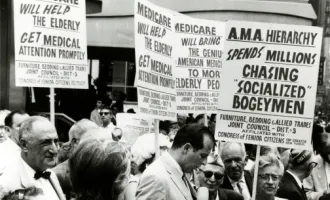A Medical Student Joins the “The Hunger Challenge”
To raise awareness about a U.S. House of Representatives bill proposing to cut funding for food stamps, the San Francisco and Marin Food Banks sponsored “The Hunger Challenge” (sffoodbank.org/hunger-challenge-2013) in September.
The challenge: Participants were asked to live for five days on a standard allotment from the food bank and the dollar equivalent of food stamps — $4.50 per day.
As a medical student, I often work with patients at San Francisco General Hospital who struggle to make ends meet. I decided to participate in the challenge to experience at first hand what it’s like to eat as one of my low-income patients.
However, as someone both used to budgeting and in a relative position of privilege, I gave myself an extra rule: Turn down free food in any form. Those living on food stamps don’t have the same opportunities I do.
So the week began. I made dinner at home nightly and rationed half my portion for lunch the next day. I took salt and pepper packets from the local fast food restaurant for added spice. In the middle of the week, I broke down and splurged on a package of butter, because my attempt at frying an egg in oil from my can of chili had failed miserably.
Throughout the week, I found many aspects of my experience were shared by other participants. Yes, eating out or buying coffee became unimaginable. Yes, I was dramatically limited by my food choices. I accepted these changes and even expected them.
But what I was far more interested in were the consequences of my self-imposed extra rule; the number of times in which food was offered to me as a person in a position of privilege.
In five days, I counted 27 unique instances in which someone offered me food or invited me to share a meal. I turned down snacks offered by friends and dinners made by roommates. I said no to physicians’ offers of hot chocolate, cake and bags of garden produce.
During one particularly memorable lunch, I had to steel myself to eat my bland meal of onions, potatoes and fruit while a classmate dug into a free hospital spread of crispy taco bowls piled high with beans, rice, barbecued chicken, guacamole, salsa, sour cream and cheese.
As a medical student, someone afforded dozens of opportunities because of my level of education and people I know, food is continually in surplus. Limiting the dollars I can spend on food makes my life harder, but not unmanageable. Reducing the same amount for the disadvantaged, however, has a disproportionate impact, because their social resources are so much more limited.
The House bill passed 217-210 on September 19, slashing billions of dollars from the food stamp program. This means that about four million people will lose food stamp benefits, and many others will have theirs reduced. Health and poverty are intimately intertwined, and if we continue to take away this safety net, the only thing we’ll save is our frustration about why the poor remain poor.


